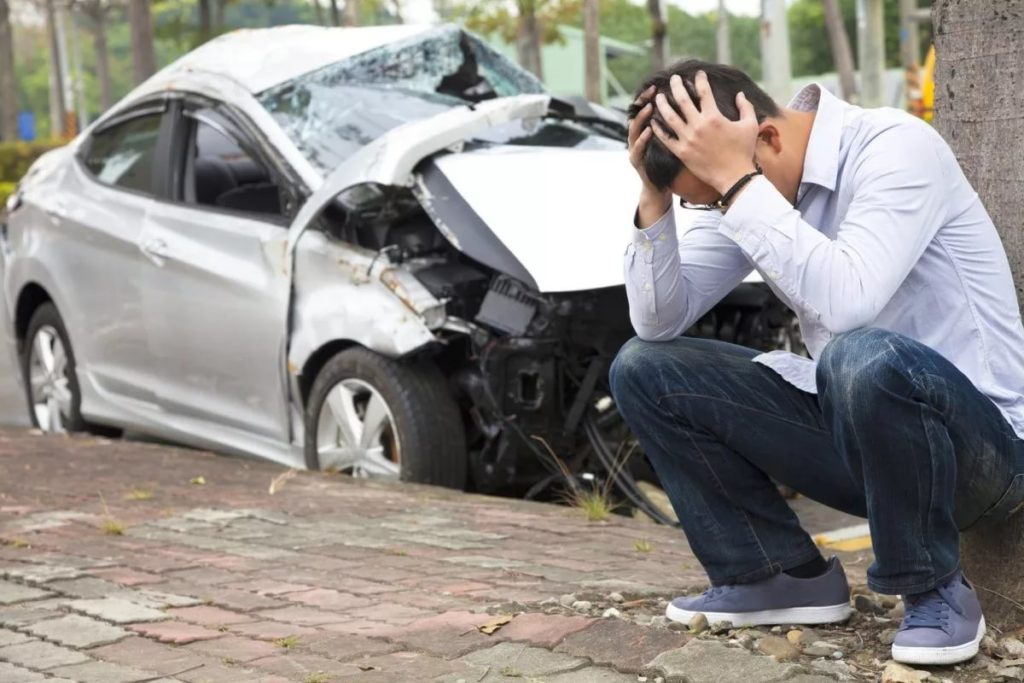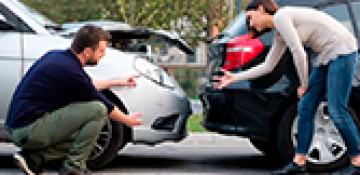Lawyer with 15 years of legal experience, specialization: family and civil law, inheritance, contract law, criminal cases, administrative cases, cases involving foreigners, migration law
Road traffic accidents (RTAs) often result in not only material but also moral losses for victims. Compensation for non-pecuniary damage is an important aspect of protecting the rights of victims, which requires detailed consideration and appropriate legal regulation. In this article, we will examine the procedure for compensation for non-pecuniary damage after a road accident, the main stages and legal aspects of this process.
Compensation for non-pecuniary damage: concept and legal regulation
Non-pecuniary damage is defined as physical or mental suffering caused by a violation of a person's rights. Compensation for non-pecuniary damage is provided for in Articles 23 and 1167 of the Civil Code of Ukraine, as well as other regulations. An important aspect is that moral damages can only be compensated if they were caused by the unlawful acts or omissions of another person.
The main stages of compensation for non-pecuniary damage after an accident
Collection of evidence
The first step to compensate for non-pecuniary damage is to collect evidence confirming the fact of the accident and the moral damage caused. This can be:
- Eyewitness testimony.
Medical certificates and reports on physical and mental suffering.
Police reports on the accident.
Assessment of non-pecuniary damage
Assessment of non-pecuniary damage is a difficult task because it has no specific material expression. For this purpose, psychologists, doctors and other experts may be involved, who can provide relevant opinions on the degree of moral suffering of the victim.
Filing a claim against the culprit of the accident
As in the case of material damage, the victim may file a claim against the culprit of the accident for voluntary compensation for non-pecuniary damage. The claim must contain all the circumstances of the accident, a calculation of the damages and a claim for compensation.
Filing a lawsuit in court
If the culprit of the accident refuses to compensate for non-pecuniary damage voluntarily, the victim has the right to file a lawsuit against the culprit for damages. The claim must specify all the circumstances of the case, the calculation of non-pecuniary damage and the claim for compensation.
Compensation for damages in an accident from the culprit
Compensation for damages in a road traffic accident from the culprit includes both material and non-pecuniary damages. To do this, the victim has the right to file a lawsuit against the culprit of the accident for damages. It is important to prepare all the necessary documents confirming the fact of the damage and its amount.
Recovering damages from the culprit of a road traffic accident through the courts
Recovering damages from the culprit of a road traffic accident through the courts involves several stages:
- Preparation of a statement of claim: The statement of claim must contain all the circumstances of the accident, the calculation of material and non-pecuniary damages, and the requirements to the culprit.
Filing a lawsuit in court: The lawsuit is filed with the local court at the place of residence of the culprit or the place of the accident.
Trial: The court considers the case, hears the parties and makes a decision. Witnesses and experts may be involved.
Execution of the court decision: In case of a favourable court decision, the enforcement service enforces the decision.
Legal aspects of compensation for non-pecuniary damage
Legal aspects of compensation for non-pecuniary damage include:
- Legal substantiation of claims: The victim's claims must be substantiated by the law.
Evidence base: It is important to have sufficient evidence to prove the moral damage suffered and its amount.
Legal support: A lawyer can help prepare a claim, collect the necessary documents and represent the victim's interests in court.
Psychological aspects of assessing non-pecuniary damage
Psychological assessment of non-pecuniary damage is an important step in the compensation process. Psychologists can provide conclusions about the degree of suffering experienced by the victim as a result of the accident. These opinions are important evidence in court, as they help to substantiate the amount of non-pecuniary damage.
Peculiarities of compensation for non-pecuniary damage in road accidents involving minors
Compensation for non-pecuniary damage in road accidents involving minors has its own peculiarities. In such cases, non-pecuniary damage may be caused not only to the minors themselves, but also to their parents or guardians. The court takes into account the age of the victims and the degree of their suffering.
The role of a lawyer in the process of compensation for non-pecuniary damage
A lawyer plays a key role in the process of compensation for non-pecuniary damage. His tasks include:
- Consultations: Providing legal advice on the rights of the victim and possible ways to compensate for non-pecuniary damage.
Preparation of documents: Assistance in collecting the necessary evidence and preparing a statement of claim.
Representation in court: Representation of the victim in court, protection of his or her rights and interests.
Negotiations with insurance companies: Negotiating with insurance companies on the payment of compensation.
Support of enforcement proceedings: Control over the enforcement of a court decision.
Problems and risks in the process of compensation for non-pecuniary damage
During the process of compensation for non-pecuniary damage, victims may face a number of problems and risks:
- The perpetrator's refusal to compensate: The perpetrator may refuse to admit his or her guilt or to compensate for moral damages voluntarily.
Illegal actions of insurance companies: The insurance company may refuse to pay or underestimate the amount of compensation.
Difficulties with evidence: Insufficient or absent evidence can complicate the process of recovering non-pecuniary damage.
Legal costs: Court costs can be significant, especially if the case is protracted.
Need help recovering non-pecuniary damage after an accident? Contact the professional lawyers at consultant.net.ua. Our team will provide you with qualified legal support, help you prepare documents and represent your interests in court. We are ready to fight for your rights and ensure fair compensation for non-pecuniary damage. compensation for damage in an accident from the perpetrator, recovery of damage from the perpetrator of an accident through the court, claim for the recovery of damage from the perpetrator of an accident, recovery of damage in an accident, recovery of material damage during an accident, a claim for compensation for material damage in an accident, sue the perpetrator of the accident, recovery of depreciation from the perpetrator of an accident, recovery from the perpetrator of an accident, accident compensation for damage.
Conclusion
The procedure for compensation for non-pecuniary damage after an accident is complex and multi-stage, but with the right approach and proper legal support, victims can achieve justice. Compensation for damages, recovery of material losses and compensation for non-pecuniary damage are key aspects of this process. Lawyers play an important role in protecting the rights of victims by assisting with the preparation of documents, filing claims and representing them in court.

































